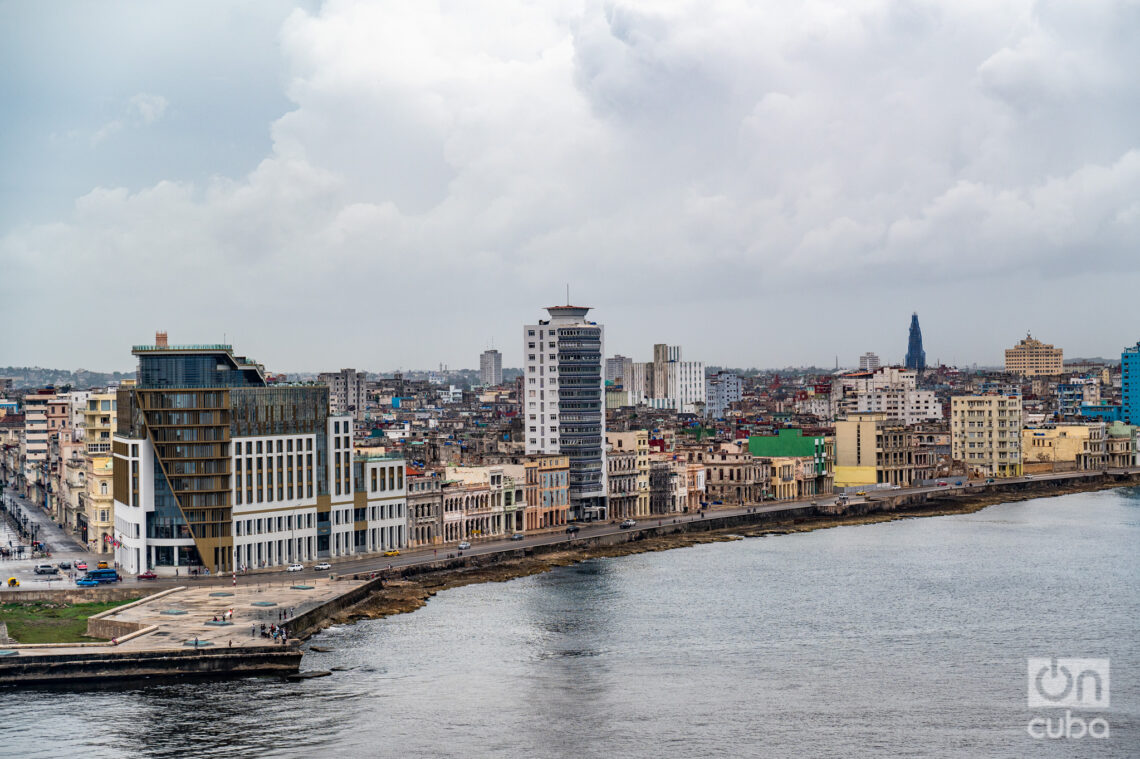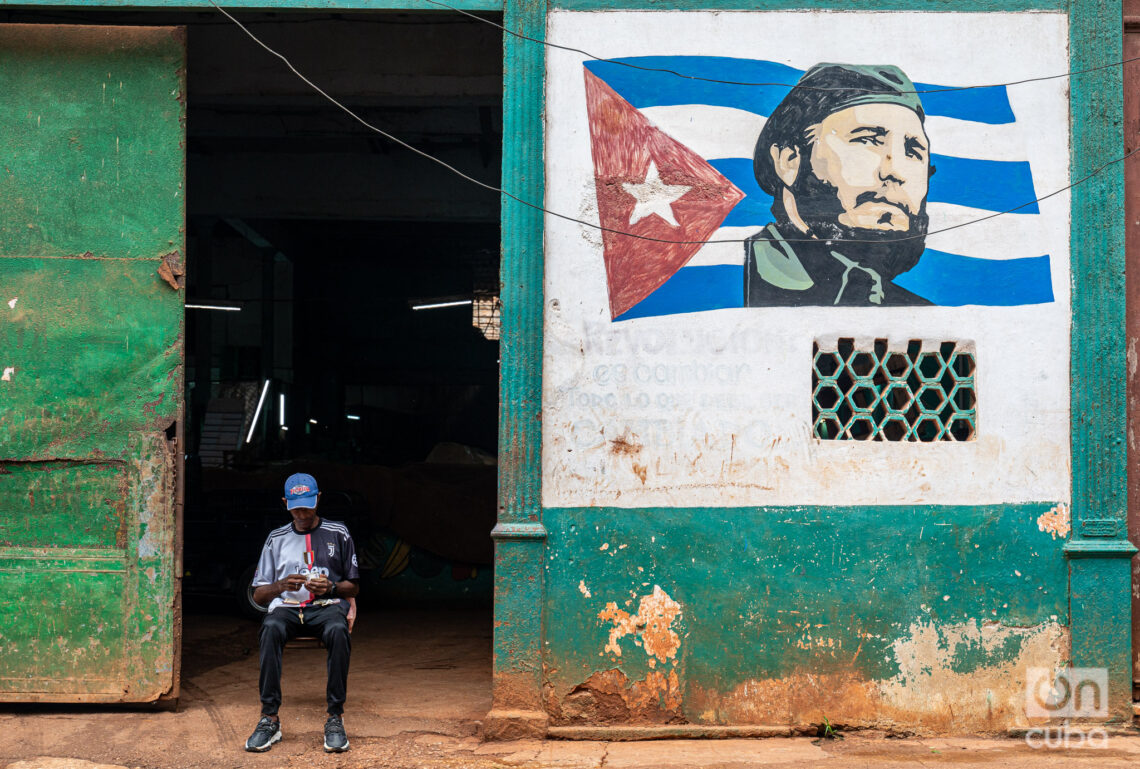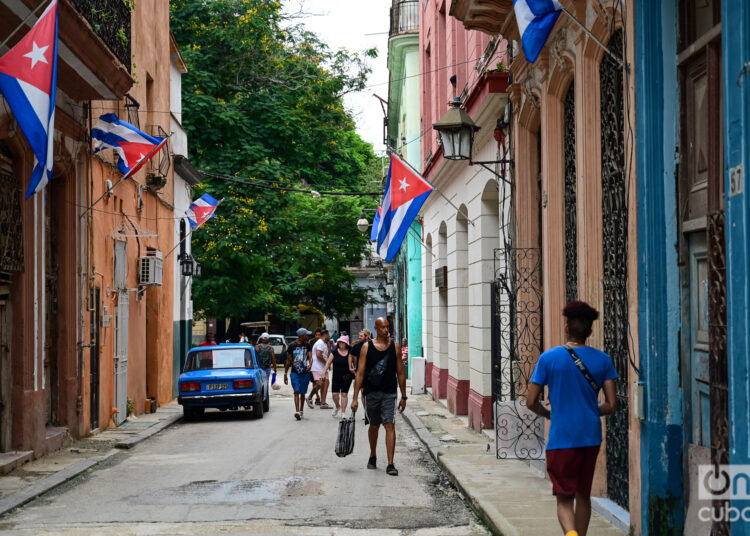When Arnaldo Coro brought me the manuscript on Radio Martí that one of his students was going to defend as his undergraduate thesis at the Higher Institute of International Relations (ISRI), the brand-new station hadn’t even begun broadcasting yet. We immediately thought it was perfect for the first issue of Cuadernos de Nuestra América, the magazine of the CEA (Center for American Studies), which Alfredo Prieto and I were editing.
The graduate, whom Coro familiarly called Pepe Cabañas, had done impressive research, in which he explained in great detail how the project for a radio station specifically aimed at Cuba, separate from the Voice of America, had been approved in Congress after two attempts.
At that time, no one in the Cuban media spoke of the Florida Congresspeople Dante Fascell and Paula Hawkins, promoters of RM in alliance with the White House, much less of the then-new lobby of the Cuban-American elite known as the Cuban-American National Foundation, formed in the shadow of Ronald Reagan and his team. Nor were Jorge Mas Canosa or Congresspeople Lincoln Díaz-Balart and Ileana Ross mentioned, as they would be fifteen years later, when the Elián González affair would put them in the spotlight.
In those years of the end of the “Vietnam syndrome” and the U.S.-USSR detente, of rampant neoconservatism under which Reagan had been elected by a wide margin, with the rise of the Central American wars, the invasion of Grenada, and the new wave of global anti-communism, the ghost of “other Cubas” had once again haunted U.S. politicians.
For us, of course, despite all that, it wasn’t easy to explain why U.S. voters had gone from someone like the “dove” Jimmy Carter to a “hawk” like Ronald Reagan. (If we had had a crystal ball back then to look forward four decades, what we would have seen in that ball would have frightened us like a political horror movie where the world ends.)

A radio station against Cuba wasn’t, strictly speaking, a novelty. Radio Swan, in 1960, had been part of the Bay of Pigs plan; and the Voice of America (VOA) itself had been there, available on Cuban radio stations since March 1961. However, that special VOA Cuba-focused programming had been suspended ten years earlier, in 1974, suspended, they said, due to a “lack of information.”
The argument for justifying RM in the Reagan administration was not only to “bring the truth to the Cuban people,” but to punish Havana for its military presence in the Southwest and the Horn of Africa. Although this presence had the endorsement of the Organization of African Unity and had not caused conflict in Cuba’s relations with European powers, this objection had been a source of disturbance in the normalization process launched by the Carter administration. However, it had not blocked it.
Carter’s defeat in the 1980 elections, the revolutionary changes in Central America following the overthrow of the Somoza dictatorship, in the Middle East following the fall of the Shah in Iran and the beginning of the revolutionary process, the Soviet invasion of Afghanistan, and the arrival of a team of hawks in the White House, had led to a resurgence in the ideological polarity of the Cold War.
This polarization emphasized resources typical of the confrontation with the East, such as Radio Free Europe and Radio Liberty, upon which the scheme of a “Free Radio Cuba,” christened Radio Martí, was modeled. When the Solidarity union movement overwhelmed the Gdansk shipyards in Poland, the success of these subversive radio stations in Eastern Europe was attributed to the success of these subversive radio stations, as were the political crises in Eastern Europe that led to the demolition of the Berlin Wall, the dismantling of the socialist bloc, and the end of the USSR.
It is not my intention, nor do I have the space, to recount the intra-bureaucratic struggles surrounding Radio Martí. I will only point out that the initial opposition within Congress was not based on respect for the principle of non-intervention or Cuba’s sovereignty, but rather on avoiding unnecessary expenses or duplicating functions that the VOA could and should perform.
With the launch of TV Martí in 1990, the debate surrounding its usefulness would be revived. A study on the subject suggested that, by undermining the government’s control over information, informing the Cuban people about the government’s internal mismanagement and its promotion of subversion and international terrorism in the hemisphere and elsewhere would supposedly help make the government “more accountable.” The stated objective of Radio and TV Martí’s broadcasts was to inform the Cuban people of “accurate, objective, and complete news” about their country and the world.
However, the problem arose as to how respect for a nation’s sovereignty could be reconciled with intrusive broadcasting from abroad without violating the basic freedom of human beings to receive and share information with others. Radio and TV Martí could be perceived as an example of the United States dictating its own version of “accurate, objective, and complete” information to a vulnerable neighbor in the name of freedom of information.
Indeed, a 2010 study of TV Martí questioned the channel’s ineffectiveness in undermining the Cuban communist government and promoting “the democratic transition.” It had been interfered with for 20 years, since its inception in 1990. The question then became why the United States should continue to fund a television station with no viewers.
The study concluded that TV Martí’s very existence was best understood in relation to “Cuban exile nationalism”; and that the themes of what TV Martí is supposed to represent and for whom it is created raise questions not only about its effectiveness as propaganda aimed at addressing Cuban citizens — on a TV signal that no one in Cuba can watch — but also about the stakes involved in exporting the imaginary of exile to the island.
According to TV Martí, Cuba’s fate was being played out in Miami, among those who chose to leave. The political, economic, and cultural model developed there, in a foreign country, was determined to be the one Cubans should emulate: the island itself became “an inverse annex of a Cuban-American nation,” the study concluded. These complexities emerged when trying to understand the substance of TV Martí’s imperialist message and the way it negotiated the themes of U.S. nationalism and Cuban exile.
This topic ultimately alludes to an essential contradiction between RM’s goals and means. The tension between providing truthful, balanced, and impartial information that would contribute to developing a democratic political and civic culture, on the one hand, and its implementation through a channel as biased as the Cuban exile community, a field of interests vying to appropriate the benefits provided by U.S. policy toward Cuba since 1959.
In fact, as early as 2010, John Kerry and several Democratic Party senators recommended, in a report, the relocation of Radio and Television Martí and the Office of Broadcasting for Cuba to Washington, D.C., and the merger of their operations with VOA, alleging that RM and TVM had low-quality programming and low viewership in Cuba; and, more specifically, the existence of nepotism and corruption within the agency.
It is not surprising that an economic rationalization would put these news services in the spotlight; as well as other private media outlets (called “independent”) that are characterized by the same logic of exploiting for their own interests the resources that the U.S. government provides for the struggle “for democracy and freedom of the Cuban people.”

Before concluding, I don’t want to leave aside the issue of RM’s impact in Cuba. In the absence of a public study to support it, my impression is that, beyond the rejection of its interference and the lack of credence in its stated intentions, RM generated interest and was well-received in Cuban society in its early years. This was especially due to the communicative effectiveness of its programming and the style of some of its hosts.
I remember that very few of my friends shared the idea that “revolutionaries shouldn’t listen to Radio Martí.” Some of us wondered how we were going to criticize these approaches and eventually argue with those who took them wholeheartedly if we weren’t aware of the source. Ideological struggle was one thing, and ostrich politics was another.
It even seemed to me that Cuban radio was not immune to this impact. So, to clear up that old doubt, I went to ask Ana Teresa Badía, a long-time radio broadcaster and professor at the University of Havana’s School of Communication: To what extent were the changes in Cuban radio since 1984 a response to Radio Martí?
“Since the early 1980s, radio began to consolidate significantly. I don’t see this solely as a result of Radio Martí’s launch in 1985; but as a combination of contextual factors. In particular, the ideological upsurge that the Reagan administration spearheaded, beyond radio.
“This transformation responded to a combination of social, political, economic, and technological mediations, both in Cuba and internationally. For example, the merger of Radio Rebelde and Radio Liberación in 1984, with 24-hour broadcasts, was a milestone, marking a change in the way radio was produced. Advanced technology for the time was used, such as teletypewriters, which were information transmission systems. During this period, FM radio was introduced, which masked illegal radio signals broadcast to Cuba. Both AM and FM, not only Radio Martí, but also those from other stations. And if one genre was valued, from that date on, it was news.
“Haciendo radio and other news programs like Exclusivo were then aired, characterized by live broadcasts, immediacy, and, above all, a radio discourse closer to the people. An important element of this time was the development of local radio stations in the country’s different municipalities. These transformations were so significant that they continue to this day, especially those related to the new characteristics of radio discourse, which was more agile, less gray, and more similar to the people. Then the first public service messages appeared.
“The use of music to attract listeners, of more effective soundtracks. Let’s remember that Radio Martí, and other stations broadcasting to Cuba, heavily exploited nostalgia. That’s why they broadcast soap operas, for example. The consolidation of music and drama broadcasts in Cuba was part of this very particular scenario.
“It wasn’t just Radio Martí, but a kind of media-centric U.S. war against countries like Cuba. And those changes here were an accommodation to the ideological intensification of that U.S. policy.”
Lacking space to continue reviewing some questions that the autopsy of Radio and TV Martí might raise, I’ll leave them here.
What alternative to the unilateral U.S. policy could be developed among news media there and here, that would serve the interest of making known the reality on both sides? So that Cubans could learn about society, culture, history, the workings of the system, the policies, and the problems of those living in the United States? So that Americans could have less polarized and more nuanced access to Cuban affairs? Could this agreed-upon exchange contribute to enriching the media and social communication system in Cuba; making them broader and more diverse? Overcoming the export of exile culture as the basis for an alternative, more useful, and profitable relationship? Enabling independent media in Cuba to go beyond simply replicating the one that has characterized Radio Martí for forty years? Opening up established media outlets in Cuba, along the lines advocated by the social communications law?
Perhaps some will shrug at these questions. And they’re not wrong. However, they would probably have reacted the same way if I had asked them a month ago: Is it possible that this administration will suspend Radio and TV Martí? That it will turn off the flow of dollars to the anti-government “independent media”?
To my skeptical friends, who refuse to accept changes arising from external causes and often difficult to foresee, I say the same thing that Hamlet said to his friend Horacio, after having spoken with the ghost of his father: “There are many more things in heaven and earth than the philosophy to which you are so addicted ever conceived.”










